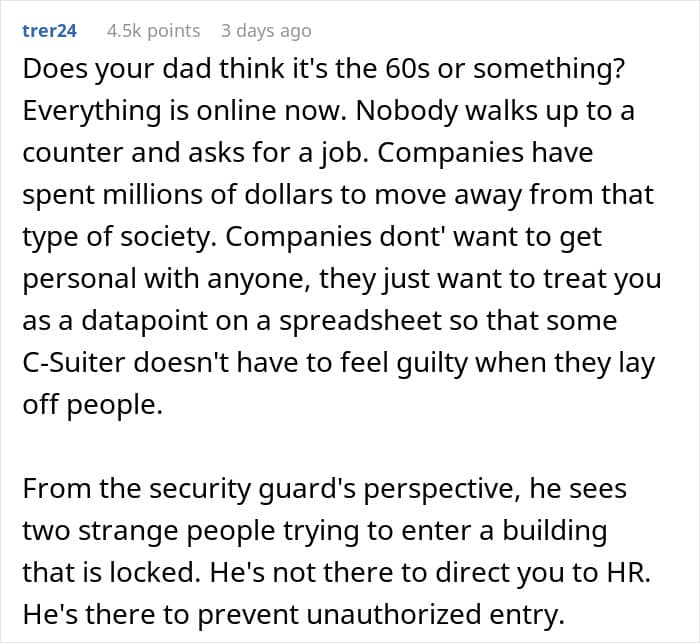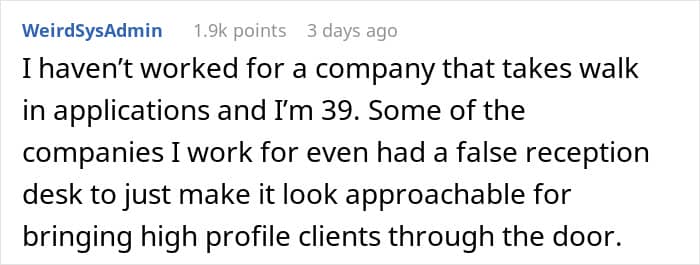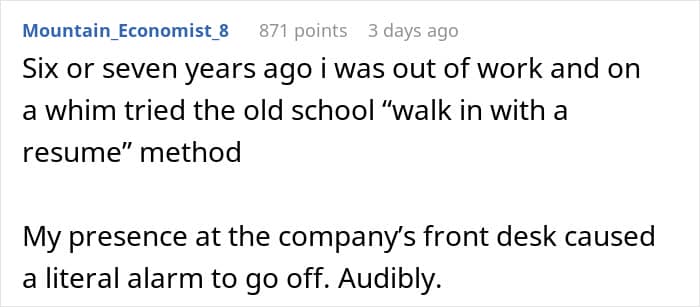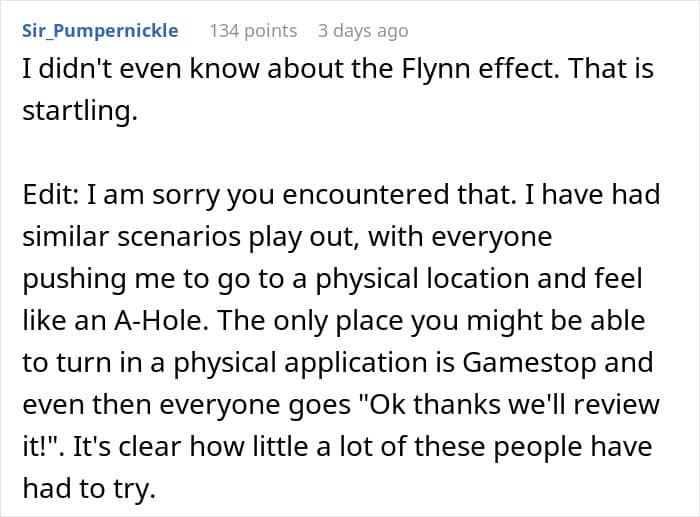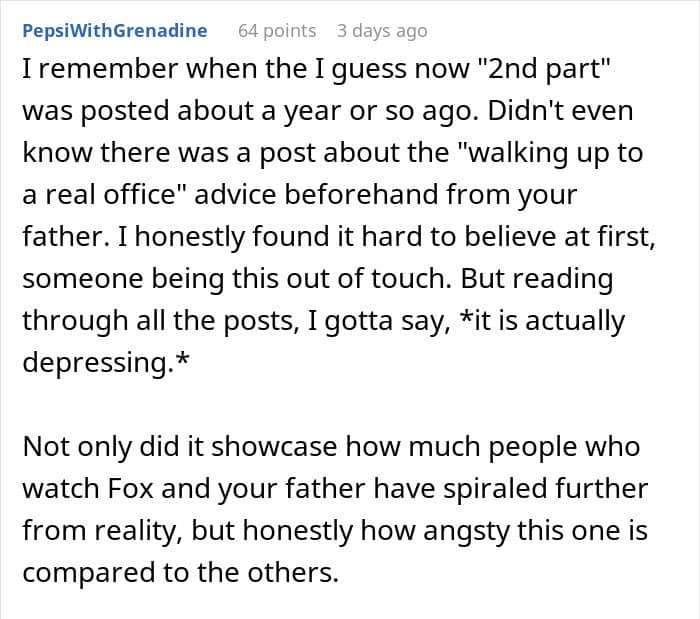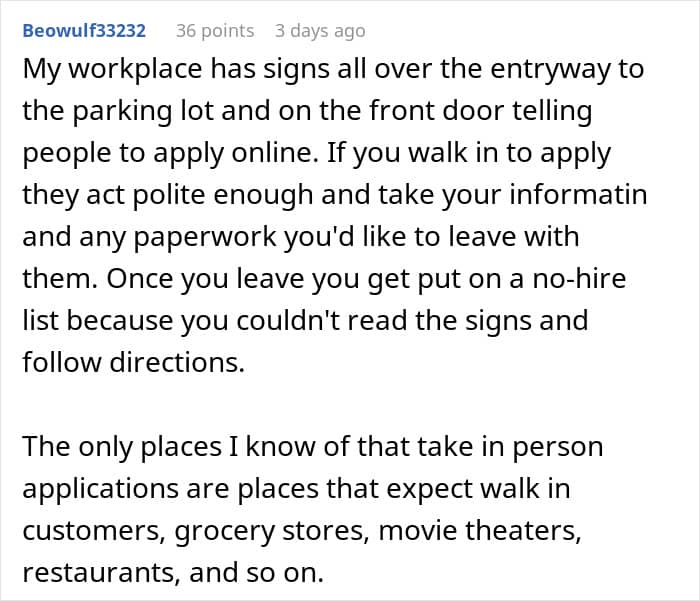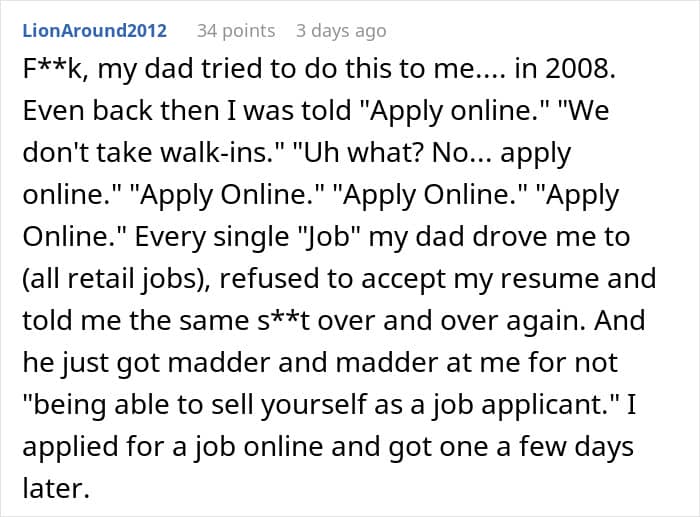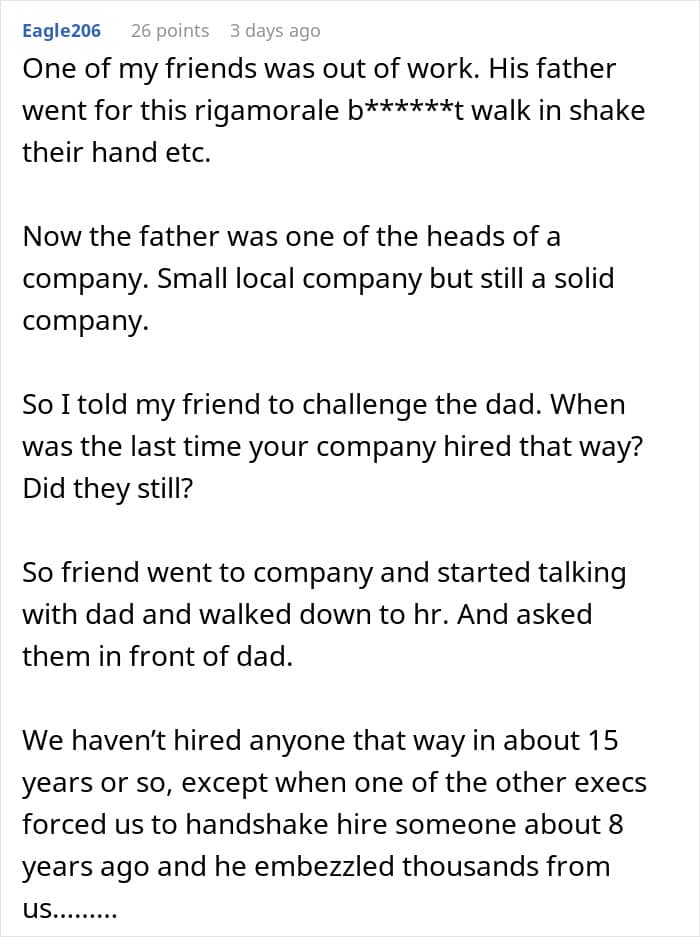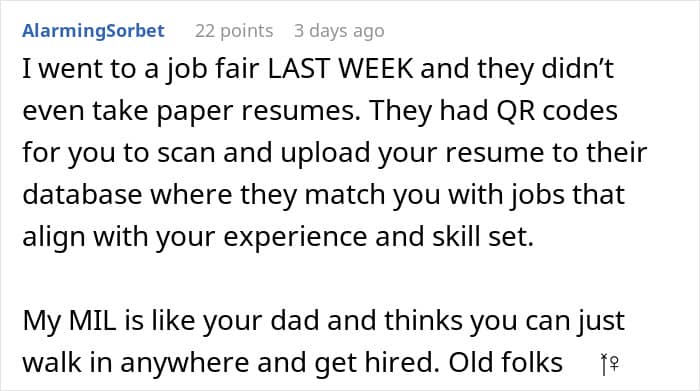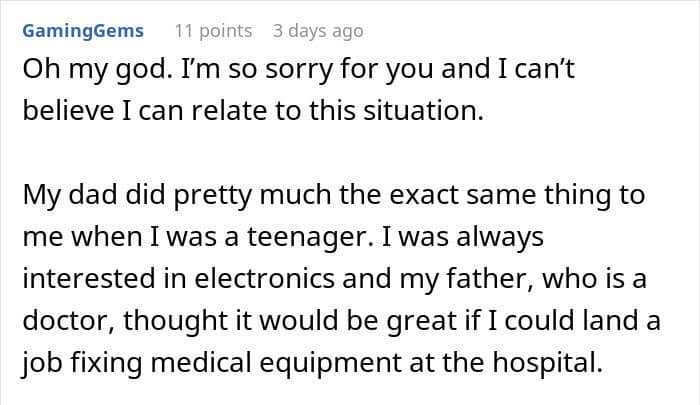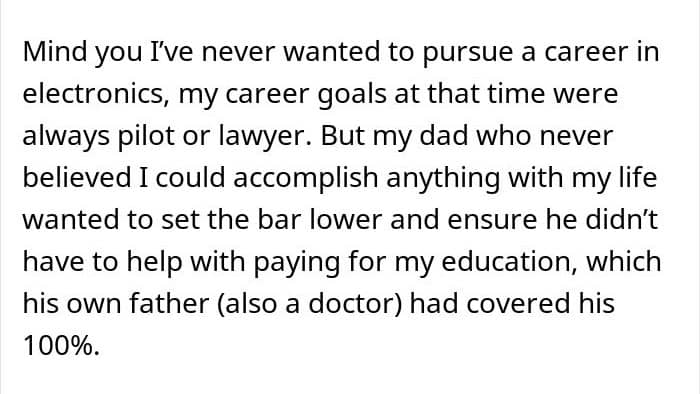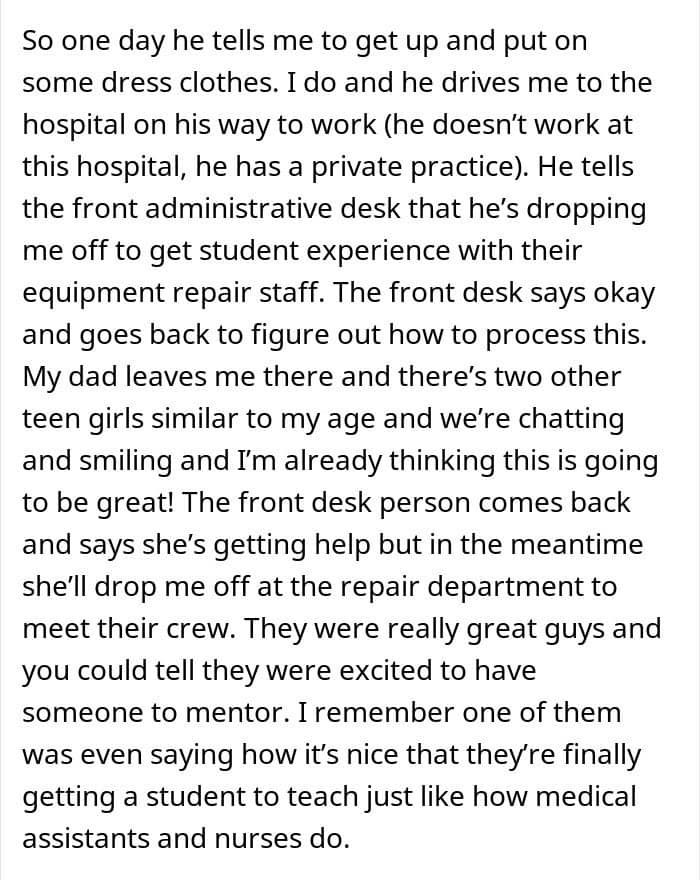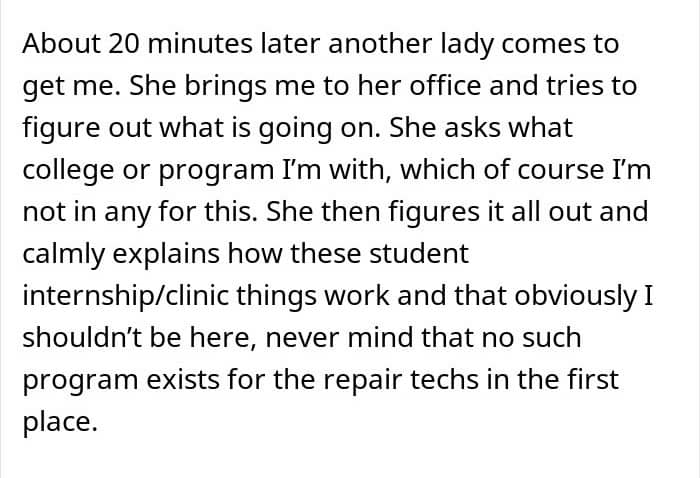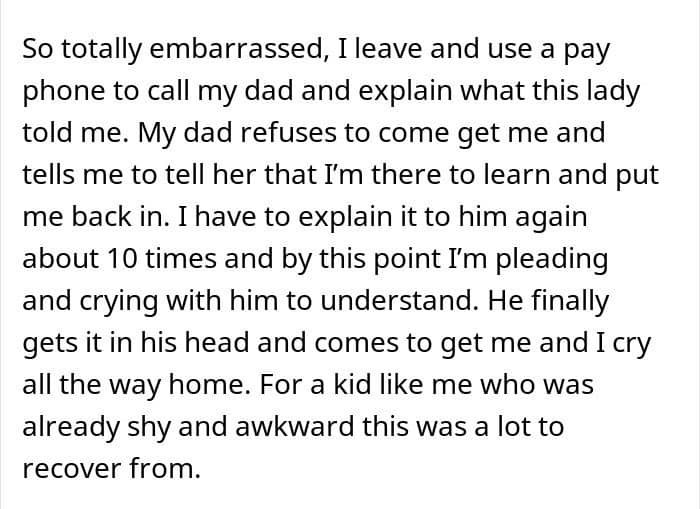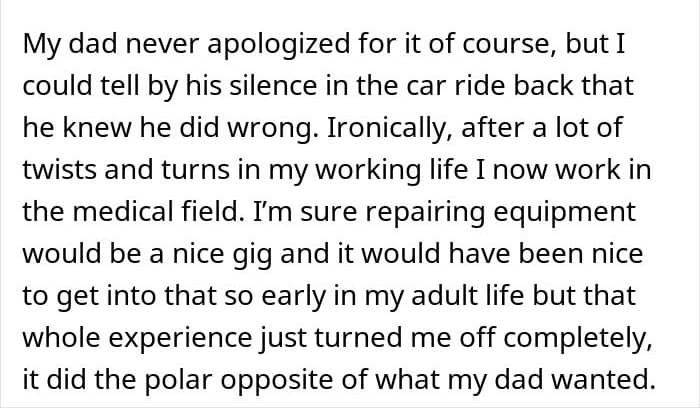You need to ask for a job to get one. So, when Reddit user Guilty-Tadpole1227 wasn’t getting hired as fast as he wanted, the guy’s dad thought it was because his inquiries were not direct enough.
In an attempt to help his son, the man took him on a trip to an office building and made him do a walk-in application, thinking the brave display of ambition would surely impress the recruiters.
However, the welcome the two of them got was anything but promising.
RELATED:
This guy just couldn’t land a job offer

Image credits: djoronimo/Envato (not the actual photo)
So, his dad decided to help him
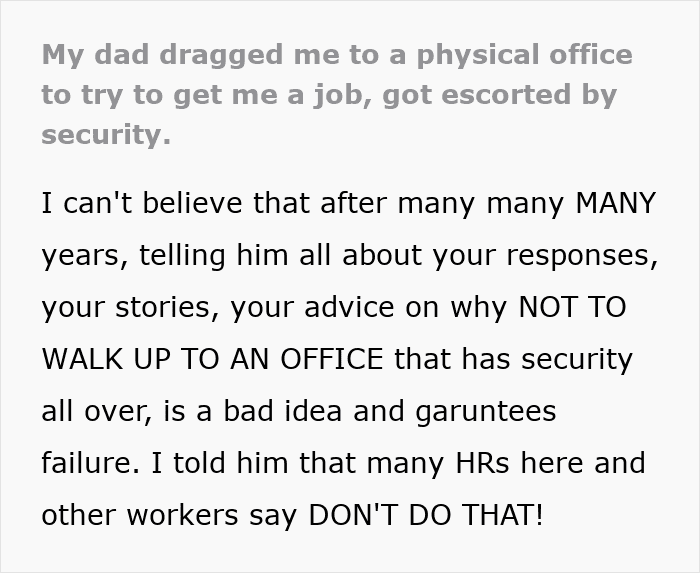

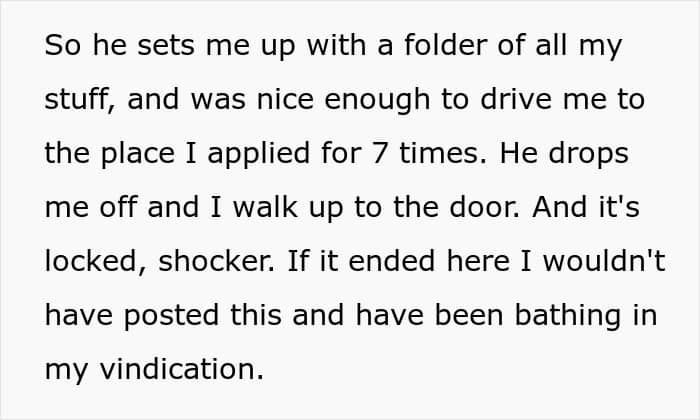
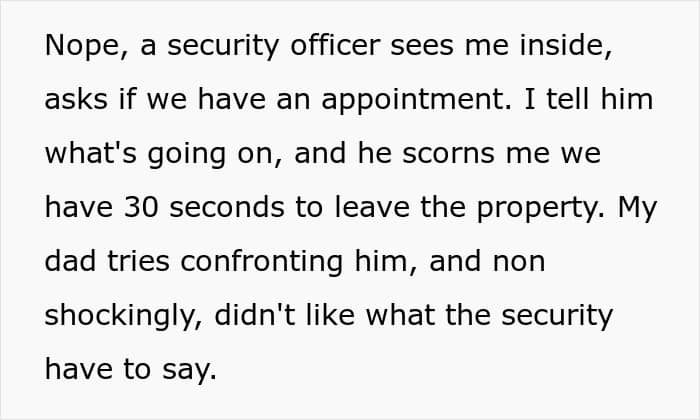
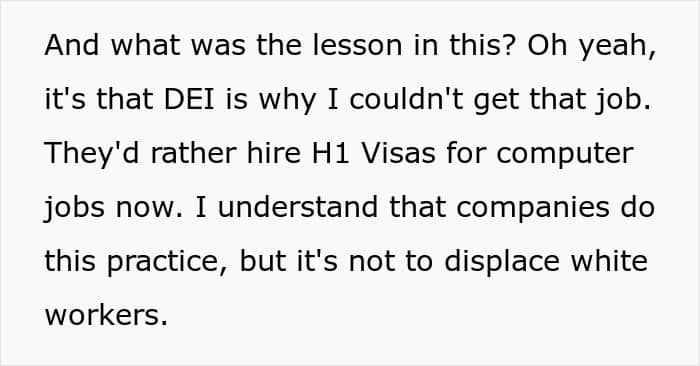
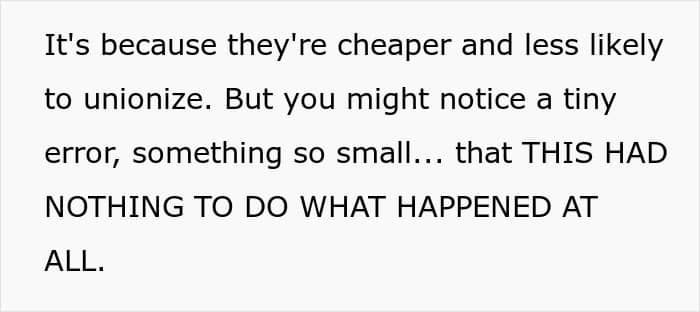

Image credits: wirestock/Envato (not the actual photo)


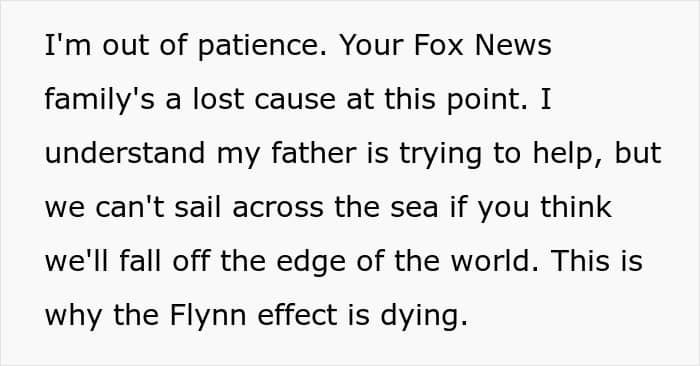
Image credits: Guilty-Tadpole1227
Getting rejected is part of the job hunt
According to some estimates, it usually takes people from 21 to 89 days from sending out their first application to receiving their first offer.
Because of this, applicants need to know how to manage their expectations.
“Rejection is not just common in the job search—it’s inevitable,” Jasmine Escalera, career expert at MyPerfectResume, a platform that provides useful tools and expert advice for job seekers, told We.
“While rejection always stings, every job seeker must remember that getting turned down doesn’t automatically mean they’re unqualified or did something wrong. There are so many reasons rejection happens that have nothing to do with the candidate, their experience, or their application.”
For example, a MyPerfectResumesurvey found that 81% of recruiters have admitted to posting ‘ghost jobs’ or positions a company has no intention of filling. These listings, according to Escalera, might be posted to make the company look like it’s growing, collect resumes for future openings, or to get insights on the current job market. “That means candidates could be investing time and energy creating customized applications for roles that, behind the scenes, don’t exist,” the career expert explained.
“On top of that, the job market is highly competitive, and rejection rates can vary depending on the role and industry you’re applying to. For job seekers, the focus must be on crafting application materials that stand out from the crowd,” Escalera said. “However, this can be tough when, according to a Zetysurvey, 72% of recruiters spend less than two minutes reviewing a resume, and some clock in at just 10 seconds. That is a tiny window to make a meaningful impression and see how rejection can happen, even with a great candidate behind the resume.”
As the career expert reiterated, it can be bad timing, a large volume of applicants, or even company politics blocking your way, so probably the best thing you can do when you’re shown the door is to go knock on another one.

Ok, but what then? How can job hunters stay motivated? Escalera offers these tips for moving forward:
Focus on what is within your control
“One of the most complex parts of the job search is accepting how much of the process is out of your control. While job seekers can’t control when they get hired or whether they will hear back from a recruiter, they can set goals to promote resilience rather than frustration,” she explained.
“Instead of focusing solely on the outcome of landing the new job, job seekers can set targets and objectives that help them focus on the process. Setting weekly goals, such as how many tailored applications to submit or networking messages to send, helps job seekers stay focused on the process, maintain momentum, recognize progress, and relieve some of the pressure that often comes with a stressful job search.”
Find a supportive job search community
The career expert acknowledged that job searches can be lonely, so connecting with other people going through the same process can be a powerful motivator. “Many job search communities have popped up due to recent large-scale layoffs, and these groups can provide fresh ideas, accountability, and a sense of camaraderie. Most importantly, these communities remind job seekers that setbacks are normal and a part of the process that no one has to go through alone,” she said.
Protect your mental health at all costs
“Job searching can quickly become an all-consuming process that takes a toll on a professional’s mental health,” Escalera added. “It is an emotional rollercoaster ride of highs (you just landed an interview!) and lows (you received yet another rejection email). This is why it’s pivotal for every job seeker to set clear boundaries around the time dedicated to the search and create space for rest, fun, and managing other aspects of life.”
“Job search burnout can lead to job seeker desperation, and no one wants to accept a role just to escape the process. The ultimate flex is to find the proper role that moves your career to the next level. Caring for yourself, not just your next application, is part of making that happen.”
Always remember your “why”
Whether you want more flexibility, a pay increase, or a better work culture, you must stay rooted in the reason behind your search. “That ‘why’ is one of the top motivators to keep pushing during tough times and stay motivated even when the interviews aren’t flowing,” Escalera said. Job seekers must constantly remind themselves why they started the process to stay grounded and focused on the goal.
As this particular story went viral, the guy behind it answered the most common questions in the comments
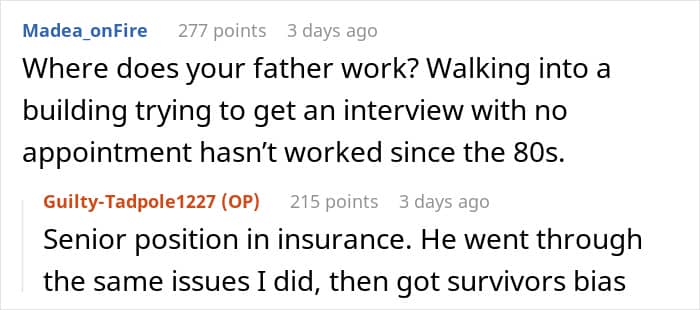


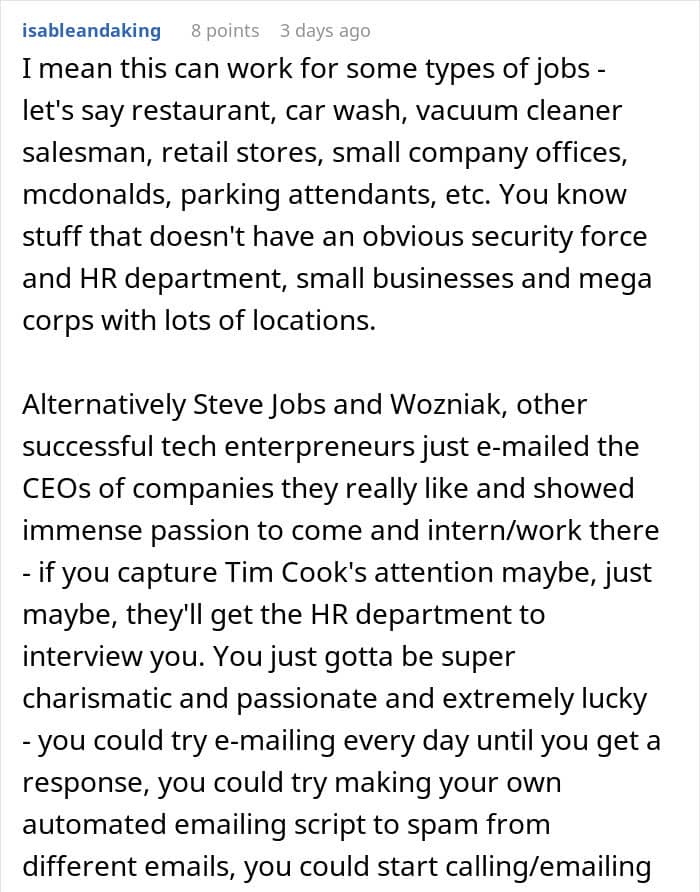
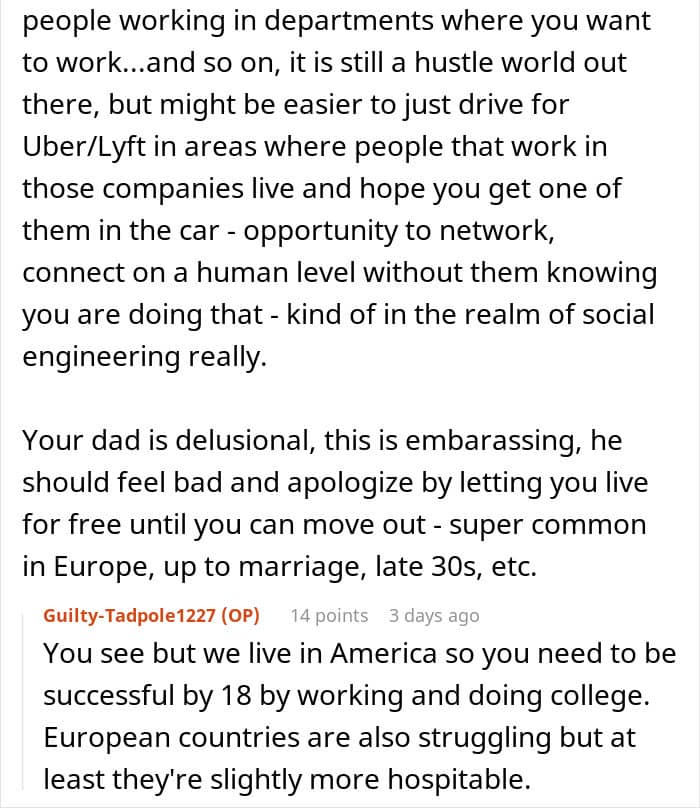
People have had a lot of reactions to it
